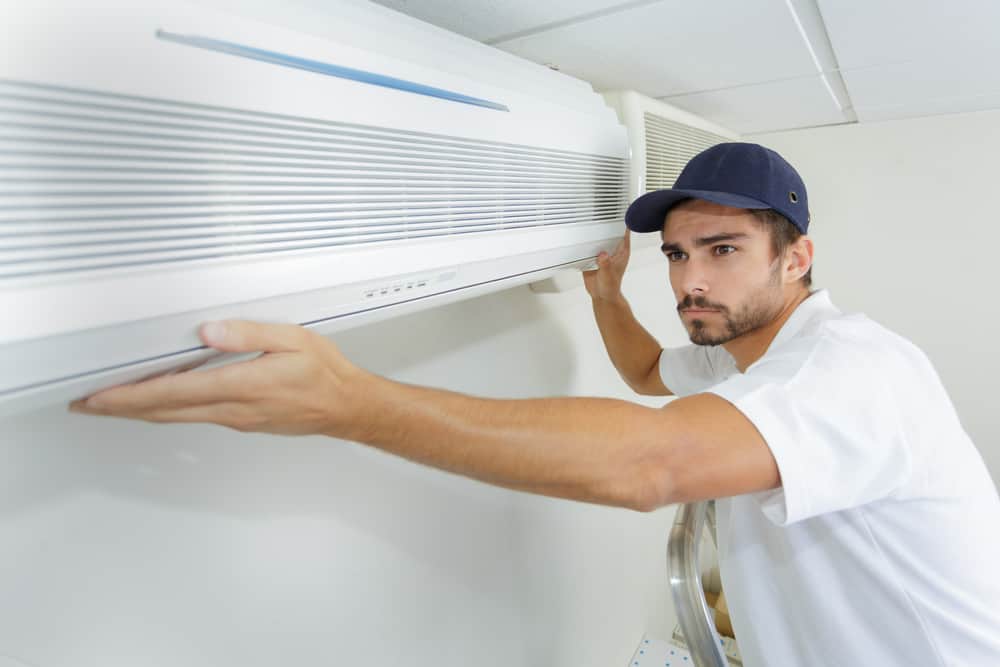When it comes to creating a cozy living environment, grasping HVAC is essential. If you're a homeowner seeking to make upgrades or someone interested in learning more about heating and cooling systems, this guide will help you find your way through the commonly puzzling world of HVAC. From selecting the right system to knowing when to fix or swap out your existing setup, we will provide you with the information you need to budget wisely for your HVAC needs.
Your HVAC system holds a crucial role in your home’s overall efficiency and comfort, but many people are not aware of the costs associated with installation, maintenance, and repairs. With this knowledge, you can make informed decisions that not only enhance your indoor comfort but also help you save on energy bills. We'll also investigate common HVAC problems and provide solutions, tips for improving energy efficiency, and guidance on maintaining good indoor air quality. By the end of this article, you'll be better equipped to understand the costs involved and how to make the most of your HVAC investment.
Comprehending HVAC

Heating, Ventilation, and Air Conditioning stands for heat, ventilation, and cooling. It is a crucial element of domestic and industrial buildings, providing a comfortable environment and preserving air quality indoors. Such systems control temperature and moisture levels while delivering fresh air through effective filtration and ventilation. They are found in various types, each designed to satisfy the particular climate control requirements of the area they accommodate.
At its heart, an HVAC system consists of a boiler or heat pump for heating, an cooling system for temperature reduction, and a network of air ducts or pipes that deliver air throughout the structure. The system also includes a thermostat for temperature control and filters to remove dust and irritants from the air. Grasping how each component works together is essential for effective performance and upkeep.
The performance of an HVAC unit depends significantly on proper installation and regular maintenance. Homeowners and businesses must pick the appropriate system based on the size and specific needs of their environment. Additionally, scheduled inspections and maintenance help avoid common problems and confirm the system functions at peak effectiveness, ultimately lowering money on energy bills and extending the service life of the system.
Heating, Ventilation, and Air Conditioning Maintenance and Efficiency
Regular maintenance is essential for keeping your HVAC system operating efficiently. This includes activities such as replacing air filters, cleaning coils, and monitoring refrigerant levels. Neglecting these maintenance tasks can lead to decreased system efficiency, higher energy bills, and even unexpected breakdowns. Property owners should plan professional inspections at least one time a year to ensure every components are functioning correctly and to identify any potential issues before they escalate.
Efficiency is not just about routine maintenance; it also involves optimizing your HVAC system's performance. Consider using go to my site to set temperatures based on your schedule, lowering energy consumption when you're not home. Insulating your home effectively and sealing any air leaks can significantly enhance efficiency by allowing your system to work less while maintaining comfort levels. Small changes in your HVAC usage habits can lead to significant savings over time.
Furthermore, upgrading to high-efficiency models can provide both short-term and long-term benefits. Latest systems are built with advanced technology that improves efficiency ratings, which means lower energy costs. If your system is more than a decade old, it may be time to assess your options. Investing in an eco-friendly HVAC system not only supports reduce your environmental impact but can also increase your home's value and provide you with better indoor air quality.
Innovative HVAC Technologies and Innovations
The HVAC field is always evolving, with progress in tech leading to more optimized heating and cooling solutions. One of the most interesting developments is the introduction of smart HVAC solutions. These technologies can be managed remotely via mobile apps, enabling homeowners to monitor and tweak their heating and cooling settings from any location. This not only enhances ease of use but also leads to electricity savings by enabling users to fine-tune their system based on real-time data and occupant behavior.
Another major innovation is the melding of renewable energy into within HVAC technologies. Solar-powered HVAC solutions, for example, harness sunlight to lessen dependence on traditional power sources, resulting in lower energy bills and a reduced carbon footprint. Additionally, earth-sourced heating and cooling technologies are gaining traction for their efficiency and ecological benefits. By utilizing the subsurface stable subterranean temperature, these technologies can maintain ideal indoor environments while consuming less energy than traditional systems.
As HVAC technologies continue to progress, indoor air quality remains a top focus for homeowners and organizations alike. Modern systems are now equipped with state-of-the-art filtration and ventilation solutions that significantly enhance indoor air quality. The best air filters and intelligent sensors identify and respond to airborne toxins and allergens, providing healthier air while encouraging enhanced health and comfort. These advancements not only make HVAC systems more optimized but also elevate the overall residential and office environment.
